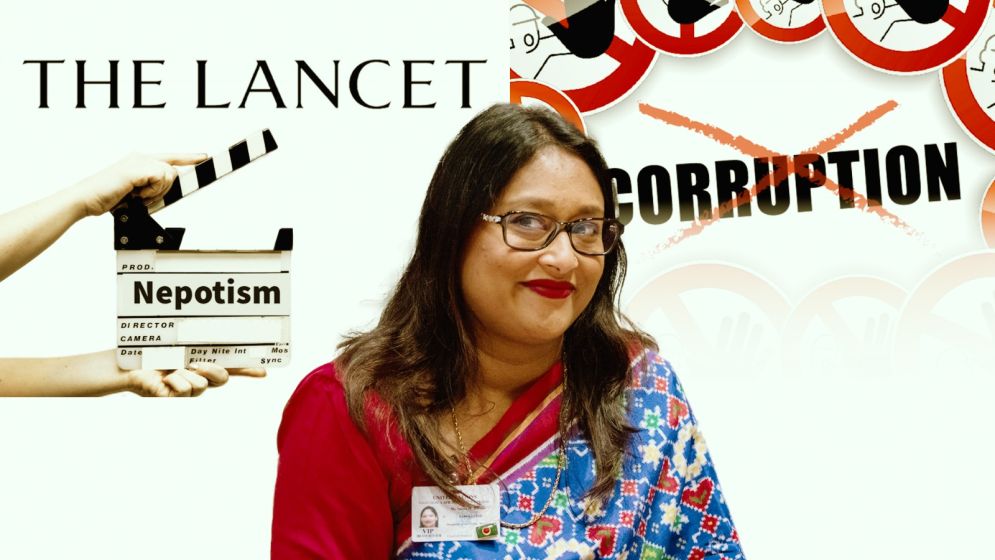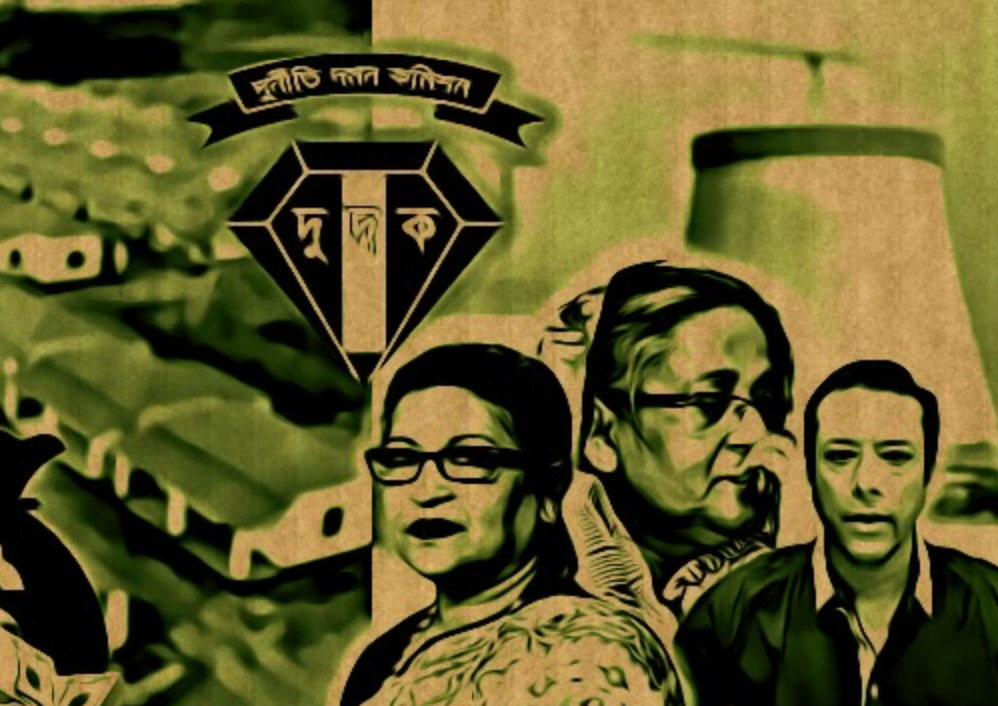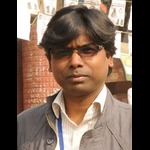After Tulip Siddiq, Hasina’s daughter Putul is likely to face the music…

Six months after Hasina’s dictatorship was ousted by a revolutionary-scaled uprising, her niece, Tulip Siddiq, was forced to step down as an anti-corruption minister in the United Kingdom, following allegations of financial misconduct.
Now, the spotlight is shifting to another member of the Hasina family: her daughter, Saima Wazed Putul, a regional director at the World Health Organization (WHO).
Putul, who oversees the Southeast Asia region for the WHO, is currently facing increasing scrutiny over allegations of corruption and nepotism.
The Bangladesh Anti-Corruption Commission (ACC) has launched an investigation into the circumstances surrounding her appointment to the prestigious position, questioning whether it was secured through unethical means, including the abuse of political influence.
Sources indicate that the ACC is preparing to send a formal request to the WHO, urging the global health organization to remove Wazed from her post.
At the heart of the controversy are accusations that Putul’s mother, the deposed Prime Minister Sheikh Hasina, played a key role in her daughter’s ascent to power.
According to ACC Deputy Director Aktarul Islam, Hasina is accused of using her political influence to ensure Wazed’s appointment, despite the latter’s lack of qualifications for such a significant position.
The Deputy Director recently spoke to The Lancet, highlighting the allegations of unethical behavior, which include the controversial decision to bring Wazed along on high-profile state visits, such as the 2023 G20 Summit in India.
The ACC’s allegations are multifaceted. In an official letter addressed to the Foreign and Health Ministries of Bangladesh, the commission outlines claims ranging from financial misconduct to the abuse of political power.
The investigation points to the likelihood that Hasina not only leveraged her political status to enhance her daughter’s profile but also orchestrated opportunities that would position Putul favorably in international circles.
Putul’s appointment to the WHO has drawn significant criticism from various quarters, with many pointing to her perceived lack of qualifications for such a high-ranking role.
Critics argue that the appointment reeks of nepotism, a familiar refrain in South Asian politics, where dynastic leadership often trumps merit-based appointments.

What do the ACC investigations mean?
Officials from the ACC have indicated that their investigation aims to determine whether Putul met the necessary qualifications for her appointment as the WHO Regional Director.
According to Rule 49 of the WHO Regional Committee for South-East Asia’s Rules of Procedure, candidates for the position of Regional Director are required to have a robust technical and public health background, significant global health experience, and a proven record of leadership in public health.
Putul, who holds a Master of Science in Clinical Psychology, lacks formal qualifications in medicine or public health.
In 2023, she was awarded an honorary doctorate by Bangabandhu Sheikh Mujib Medical University in Bangladesh. Her global health experience is limited primarily to work on autism and mental health, including advisory roles with WHO and Chatham House.
In contrast, her rival for the role, Shambhu Prasad Acharya from Nepal, boasts over 30 years of experience with WHO and holds a doctorate in public health.
Mukesh Kapila, a Professor of Global Health and Humanitarian Affairs at the University of Manchester and former Director at WHO in Geneva, supported the ACC's investigation, stating, “The ACC is right to open an investigation into the corruption allegations surrounding her appointment.”
Saleem ur Rehman, a public health expert and former Director General of Health Services in Kashmir, further emphasized the importance of qualifications for the position to The Lancet magazine.
“Regional Directors must have advanced training in public health and a proven leadership record in global health. These credentials are essential for addressing the region’s pressing health challenges effectively,” Rehman explained.
The selection process for the Regional Director involves WHO Member States nominating candidates, who then present their qualifications in a private session of the Regional Committee.
The nomination is decided by a secret ballot, and the chosen nominee is sent to the WHO Executive Board for confirmation. WHO also encourages candidates to engage with Member States at conferences or other events, fostering dialogue and transparency in the process.

Government-sponsored campaigns and
nepotism
Before the selection of the WHO Regional Director was finalized, the Bangladeshi press aggressively highlighted Putul's recognition by the WHO in 2017 for her work on autism.
Her most prominent public health role, however, was serving as the chairperson of the Shuchona Foundation, an organization focused on mental health and neurodevelopmental disorders.
She held this position from 2014 until her appointment to the WHO. The foundation, critics suggest, appeared to benefit from Putul's close ties to the prime minister—often featured in official events, with Hasina herself soliciting donations for the foundation from various banks.
A senior journalist for Himal Southasia noted in 2023, “Sheikh Hasina herself raised the money for the foundation using her position, and then her daughter became chairman.”
The journalist also pointed out that, despite Bangladesh having a wealth of qualified candidates for the WHO Southeast Asia Regional Director role, they stood little chance against Putul's candidacy.
Many experts interviewed by Himal Southasia echoed the sentiment that Wazed was not the most qualified candidate from Bangladesh.
As the election for the regional director's position drew nearer, Hasina's government is believed to have actively lobbied for Putul’s candidacy at international forums.
Putul had previously accompanied her mother on several high-profile international trips, including the ASEAN Summit in Jakarta, the UN General Assembly in New York, and the G20 Summit in New Delhi, all within a span of a few weeks in September 2023.
In response to growing concerns over nepotism and potential corruption, Putul had circulated letters of support from individuals associated with regional organizations, many of whom focus on autism-related issues.
While The Lancet and The Financial Times have reported extensively on the problems surrounding Putul’s nomination, the Bangladeshi press—largely influenced by Hasina's office—has served as a platform for Putul to defend her candidacy.
She has dismissed the allegations of nepotism as baseless, emphasizing her professional accomplishments and suggesting that the criticism of her nomination stems from sexism.
The Bangladeshi government has framed her appointment as a triumph for women’s rights, although this argument carries little weight, as Putul is hardly the first woman to vie for the WHO regional director position. In fact, the role has been held by a woman for the past decade.

Controversies surrounding WHO
appointment
WHO Regional Directors have not been immune to controversy in recent years. In March 2023, the organization terminated the appointment of Takeshi Kasai, the then Regional Director for the Western Pacific, after evidence emerged of abusive conduct.
Building on this, in January 2024, WHO's Executive Board recommended a significant expansion of the code of conduct for selecting Regional Directors.
The proposed reforms include adding provisions for addressing sexual misconduct, other forms of abusive behavior, as well as requiring candidates to disclose any potential conflicts of interest.
The new guidelines also call for more thorough reference checks and a detailed review of candidates' qualifications and employment histories.
Rita Thapa, a respected Nepalese public health expert with deep experience working with WHO, has emphasized the need for a broader overhaul of the appointment process.
“WHO must revise its criteria to ensure that candidates have foundational qualifications in medicine, a public health degree or doctorate, significant professional experience, and proven leadership abilities,” Thapa said.
She also proposed expanding the pool of nominating bodies, suggesting that public health institutions and non-governmental organizations (NGOs) should be allowed to propose candidates.
Additionally, Thapa advocates for the creation of a professional evaluation committee to vet candidates, which would then provide a shortlist for final approval by the WHO Regional Committee.
The controversy surrounding Wazed’s appointment has had broader repercussions, according to Mukesh Kapila, a Professor of Global Health and former WHO Director.
He argued that the “messy and nasty” nature of the situation has damaged the WHO’s reputation—not only in the South-East Asia region but on a global scale.
“It definitely undermines faith in WHO processes and transparency,” Kapila said, adding that the scandal feeds into narratives held by critics like former U.S. President Donald Trump, who has previously called for the U.S. to withdraw from the organization.
In response to the allegations, WHO spokesperson Tarik Jašarević stated that if any wrongdoing is suspected in connection with a WHO election campaign, it is appropriate for national authorities to conduct the investigation.
He also reiterated that WHO would not provide comments on any ongoing investigations or legal proceedings. To date, Saima Wazed Putul has not responded to The Lancet's requests for comment.
—-
Harun-Ur-Rashid is a writer and commentator

